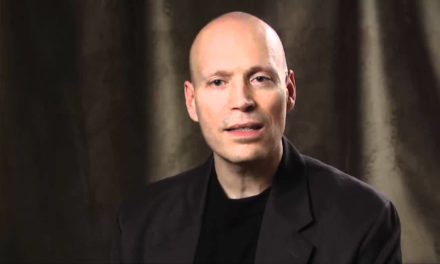The Big Resignation was definitely not what employers like myself expected from a pandemic. Sure, I remember the protocols that had to be followed due to the need for safety and controlling the spread of COVID were disruptive, but as soon as the sickness risk was over, everybody was going to be back at the office, at least that’s what we thought at the time. My name is Anthony Cavaluzzi, and, like a lot of employers, we went through the same shift as everyone else during the pandemic. We started having key talent begin to quit.
I personally believe the big change happened when workers went remote; long-time employees realized they had a life at home. And for some, that became very attractive again. Workers felt they needed to get more of it than their current employment would allow. So, my management team at Profit Management Solutions LLC started getting notices. First one, then a few, then many. And suddenly, employers had a crisis on their hands; serious experience, skill, and organizational intelligence were walking out the door and not giving a darn. We couldn’t replace departing talent fast enough.
Now, in 2023, “normalcy” is returning, and more people are in the office, but I still feel that companies are in a very weird, new place. Some call it a “new normal,” but the work environment now is really about seeing who’s going to blink first. Are employers like my company going to get their way with a possible recession and be able to pick whom they want from applicants needing a job, or are employees going to continue to call the shots, picking among offers to stay or be hired in a new place? For managers and leaders in 2023, I believe a simple principle makes a lot more sense instead: stop worrying about what will be and focus on what you can do now to keep your key people.
Get Personal
If you want good people to stay, you’ve got to get personal, become friends, and give people a reason to think of their employment as more than just a job. When compared to another opportunity that might pay more or have better work benefits, I know from experience interacting with them has to be worth a higher value, something they want to protect and keep. As a C-suite executive myself, I strongly advise focusing on a necessary, proactive step: leaders need to become vulnerable. Good friends don’t connect by clicking a “like” symbol next to a cubicle name. They get there by being human, supporting willingly when things are tough for staff, and sharing weaknesses when things are going tough for you. That builds a unique bond and a sense of trust. And I also believe it’s one of the most critical reasons why good skill stays put with a good leader.
People Want to Grow, So Let Them
Make resources available for people to find new ways to learn and find themselves again. New skills and training have an amazing effect. People wake up again, they become positive, and they want to stick around for more. It’s a bit like educational endorphins – once on, people can’t get enough of it, wanting to learn more and then more after that. So, give it to them; provide learning tools with easy access. Don’t delay; charge forward into more skill-building. It will pay dividends with more productivity as well as retention, like what we see now at Profit Management Solutions LLC.
If the Job is Not Working, Make it Easy to Exit
Your team is more than just one person, but one person going sour can be like a cancer affecting everyone else, eventually causing a mass migration. Instead, make it easy for the disenchanted individual to move on if you can’t turn him or her around. People tell me all the time, “Anthony Cavaluzzi, we can’t afford to lose these people!” However, the reality is they are already lost, just taking up space and not producing. Help them find their new place to make the transition happen faster if possible. This gives you the chance to save the rest of the team, remotivate them again, and put your energy where it counts and will produce results. Not every battle can be won, but big things happen when leaders know what to prioritize and whom they can save. Triaging is rough, but I believe it’s sometimes necessary to hold onto good people overall.
Be Willing to Listen and Engage
Also, don’t be that leader that hides in the corner office or only dictates all the time. Shut up, get on the floor, and listen to your people. Good leaders spend more time listening and allowing people to grow around them, choosing key moments to direct or coach. Remember, leaders are only powerful through their people; no good leader is an island of one.












